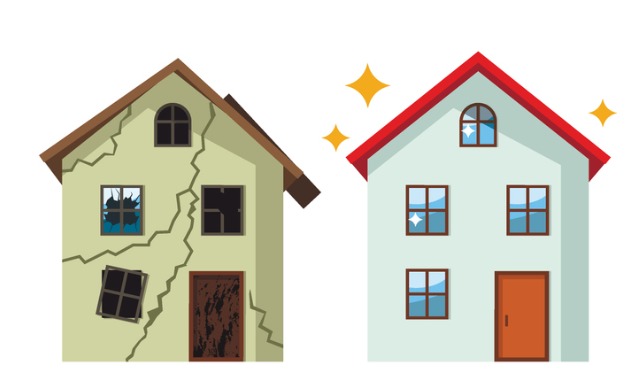By Rose Morrison
Investing in the real estate market by buying and renting homes is one of the best ways you can grow your income on the side. However, buying a new home can be daunting even if you’re not planning to move into it.
If you’re thinking about investing in your first rental home, you may be wondering what kind of property makes the most sense for you. Here are seven tips to help you decide whether a turnkey home or a fixer-upper is best for you.
Personal Goals
Although there are many factors to consider, it’s important to start by clarifying your goals for this project. Take some time to consider why you want to be a landlord. What goals are you trying to achieve? How will this step change your life?
Once you’re clear on your goals, you’ll have a roadmap that can help you evaluate the pros and cons of turnkey homes versus fixer-uppers. Write down your goals and keep them in a prominent place so they’re fresh in your mind for the rest of the decision-making process.
Total Costs
Cost will be a major factor for which kind of home is right for you. Although real estate prices vary by location, turnkey homes are generally more expensive to purchase than fixer-uppers. The high cost is a trade-off for having less work to do before you can start renting.
Many homeowners who want to rent start with a fixer-upper and invest in it before they start renting. Both methods can be profitable, but which is most profitable depends on many different factors. Before making a decision, you should do extensive calculations and research to ensure you’ll make a profit.
Financial Aid
Most homeowners who want to rent don’t have the means to purchase a rental property outright. For turnkey properties, you can apply for a typical mortgage loan. There are many loan options available for turnkey properties, including 15-year fixed and 30-year FHA loans. After you’ve completed the purchase, rent payments should more than cover the mortgage cost.
You can also apply for a conventional mortgage to help you purchase a fixer-upper. However, most people who buy fixer-uppers prefer loans that cover both mortgage and renovation costs. These loans may have restrictions on how renovations are done, but they make the process more affordable for homeowners.
Sweat Equity
Turnkey homes get that name because they’re completely finished–all you have to do is turn the key and walk in. Since any remodeling or updates are done before you buy the property, this kind of rental requires very little work from you. Additionally, the work of finding renters and handling daily issues is usually done by a managing company that you partner with.
In contrast, fixer-uppers are a lot of work. Older homes may be missing important modern amenities, and they may contain toxic materials that you’ll need to hire professionals to handle. To streamline the process, find a trustworthy contractor who can reduce your workload.
Tricky Timing
Timing is another factor to consider before you decide which type of property is best for you. Since turnkey homes are ready to go when you buy them, you can start renting and earning income very quickly after you complete your purchase.
However, fixing up a home typically takes anywhere from three to nine months, depending on how much work you need to do and how much time you have available to spend on the project. If you’re working a full-time job, it may take longer to complete the renovations, find a renter and start making an income.
Market Impact
The housing market is always fluctuating, and it will affect the cost and availability of what’s on the market. As of February 2022, the U.S. has been experiencing a seller’s market for several years. This means the supply of homes is low, demand is high and sellers have the upper hand in transactions.
In a seller’s market, turnkey properties are more expensive than usual. Many homeowners are turning to fixer-uppers as a cost-effective option in the current market. However, supply chain issues also mean lumber and other building supplies are costly and sometimes unavailable. You should consider the market and supply availability in your area before committing to a project.
Phase of Life
Don’t forget to consider your phase of life. Think about your current responsibilities and whether flipping a house makes sense for your life right now. If you're working a full-time job and raising kids, a turnkey option might be better for you.
It’s easy to romanticize fixer-uppers, and it feels good to restore the value of something that’s run-down. However, fixer-uppers are a lot of work, and it’s important to be realistic about whether that’s where you want to spend your time. On the other hand, if you’ve weighed the cost and are still interested, flipping a home may be the perfect way to reach your goals.
Consider Your Options
Choosing the right property for your goals isn’t a one-size-fits-all approach. If you’ve got the time and can afford to wait on rent, a fixer-upper may be best for you. Conversely, a turnkey property is ideal for those who want to be more hands-off.
Use the tips listed above to help you determine whether a turnkey property or a fixer-upper is the best way for you to start investing in real estate. Both types of properties are an opportunity for you to build your income and expand your experiences.
 Rose Morrison is the managing editor of Renovated.com, a home living site where she covers a variety of topics from real estate to construction. She has been writing in the industry for over five years and has been featured on a variety of reputable sites, such as the National Association of REALTORS® and the American Society of Home Inspectors. For more on Rose, follow her on Twitter.
Rose Morrison is the managing editor of Renovated.com, a home living site where she covers a variety of topics from real estate to construction. She has been writing in the industry for over five years and has been featured on a variety of reputable sites, such as the National Association of REALTORS® and the American Society of Home Inspectors. For more on Rose, follow her on Twitter.








